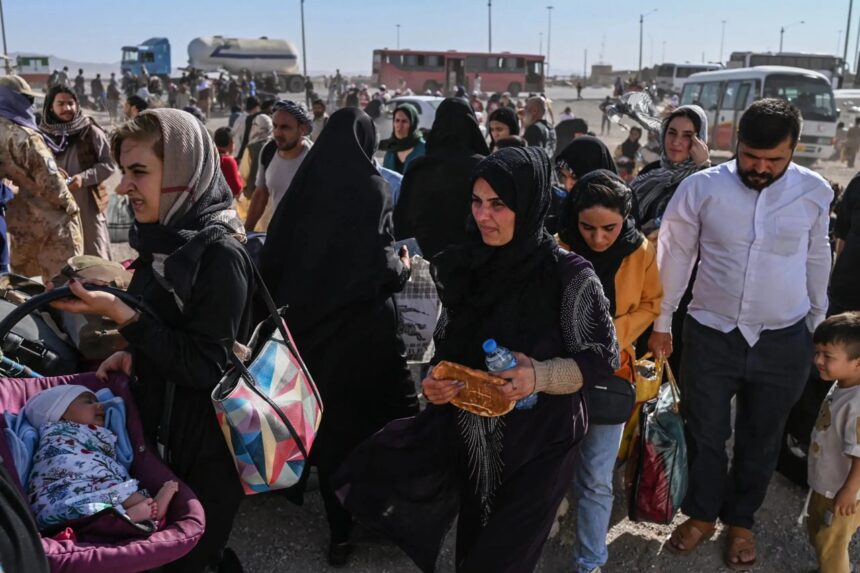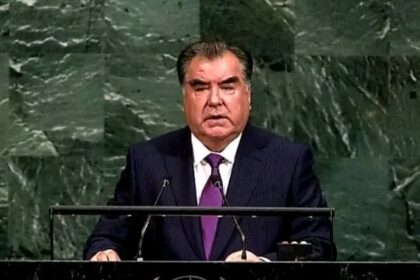RASC News Agency: Local sources along the Afghanistan–Iran frontier report a chilling trend: Taliban fighters, deployed to so‑called security missions at the Islam Qala crossing, have been entering the tents of recently deported Afghanistani families and openly soliciting marriages to their daughters. What is framed as routine inspection has, according to multiple witnesses, morphed into a predatory hunt enabled by guns, uniforms, and absolute impunity. Three returnees told media that Taliban militants “arrive under the guise of ensuring order, but once they see young women, they initiate conversations that quickly turn to marriage. Some ask, point‑blank, whether there is an unmarried daughter and whether the family is ‘ready for nikah’.” Families, terrified and powerless, have begun hiding their daughters or covering their faces to avoid the gaze of armed men who command their fate at the border. Many of the young women raised in Iran or Pakistan are utterly unfamiliar with, and deeply afraid of, the Taliban’s coercive social codes.
This is not an isolated incident. It slots into a broader matrix of gender persecution, forced and polygamous marriages, and militarized social control that has accelerated since the Taliban’s 2021 takeover. Women’s rights defenders, Islamic scholars, and international human‑rights bodies have repeatedly insisted that valid marriage in Islam requires free, informed, and uncoerced consent. The Taliban, however, have consistently refused to adopt let alone enforce any practical constraints on their commanders and fighters, thereby institutionalizing a climate of fear, silence, and systemic abuse. A recent UNAMA report documented that deported Afghanistani returnees including former soldiers, civil activists, journalists, and women face arbitrary detention, torture, harassment, and surveillance upon arrival. The fresh allegations from Islam Qala add a gendered layer of exploitation: the border as a marketplace in which desperate, dispossessed families are cornered into “choices” they neither want nor can legally resist.
The practice of forced and serial marriages among Taliban commanders and fighters has surged since 2021. Numerous accounts describe “marriages” to teenage or even pre‑pubescent girls, consummated without family consent, and under direct threats or extortion. In the latest high‑profile instance, Taliban spokesman Zabihullah Mujahid reportedly married for the fourth time roughly two weeks ago. Local sources say his new spouse is a minor from Shahjoy district, Zabul, and that the marriage was concluded without the family’s full consent and under pressure. Earlier reports have detailed Taliban officials forcing marriage on widows of former government soldiers, female teachers, and women from impoverished families a pattern euphemistically labeled “compulsory Sharia marriage” to mask what is, in effect, sexual coercion under color of religious authority. This weaponization of marriage performs several functions for the regime:
Control and Punishment — It terrorizes communities perceived as disloyal and punishes women associated with the previous order or with “unacceptable” social independence.
Material Patronage — It rewards fighters and commanders with sexual access and social status in lieu of formal salaries or welfare structures.
Ideological Theater — It projects an image of puritanical “moral governance,” even as Islamic principles of consent and justice are trampled.
Silencing Mechanism — It converts the female body into a disciplinary terrain, where fear replaces law, and submission is extracted under threat.
International and Islamic legal standards are explicit: consent is a prerequisite for marriage. Coercion whether physical, social, or economic nullifies legitimacy. Yet no Taliban directive, oversight mechanism, or disciplinary action has been implemented to curb these abuses. Instead, the regime continues to suppress women’s education and employment, dismantle independent media, and persecute civil society, creating the very conditions in which such predation flourishes with impunity. What must happen now is equally clear:
Document, protect, prosecute: Establish secure, independent channels (inside and outside Afghanistan) to document forced marriages, protect survivors and whistleblowers, and prepare dossiers for future legal action under international human-rights and humanitarian law. Condition all engagement: Any diplomatic contact, economic opening, or technical cooperation with the Taliban must be conditioned on verifiable benchmarks including an enforceable ban on forced marriage, public investigations, and punishments for perpetrators, and the restoration of women’s right to education, work, and free movement.
Humanitarian firewalls: Aid operating at border zones must be insulated from Taliban interference, with independent monitors and secure safe spaces for women and girls particularly deportees at acute risk of coercion. Islamic jurisprudential pressure: Regional Islamic councils and respected jurists must publicly and repeatedly affirm the invalidity of coerced “nikah”, stripping the Taliban of the religious veneer they rely on to legitimize predation. Accountability pathways: States with universal-jurisdiction statutes should be prepared to investigate and, where possible, indict Taliban officials implicated in systematic gender-based crimes.
The Taliban’s defenders will call these reports “exaggerations” or “isolated.” They are not. They are symptoms of a governing project that confuses domination with law, and piety with patriarchal impunity. At the Islam Qala border where the powerless return with nothing the regime’s agents reportedly arrived to take the last thing a desperate family can still protect: their daughters’ futures. Until the international community insistsvloudly, consistently, and with leverage that no engagement proceeds without women’s rights at its core, the Taliban will continue to exploit the dispossessed, convert marriage into a weapon, and proof themselves against shame with the language of faith they steadfastly refuse to honor.






